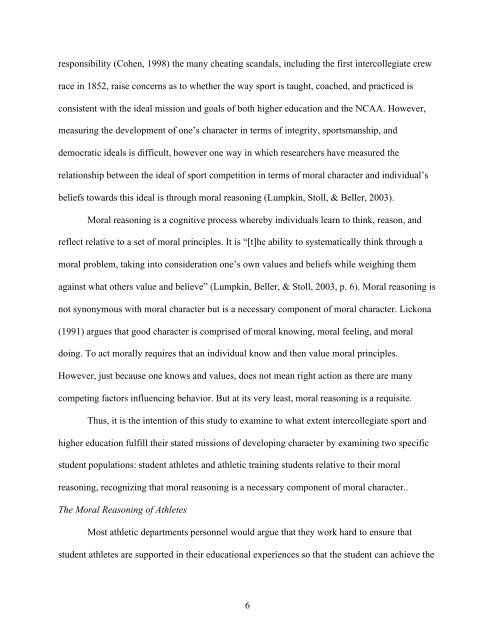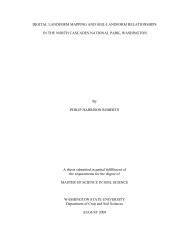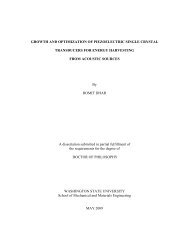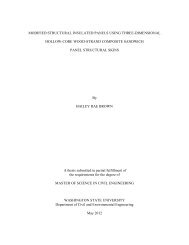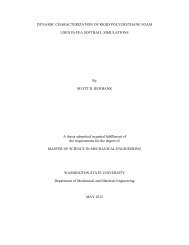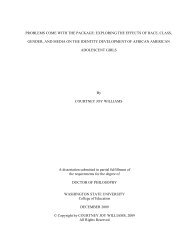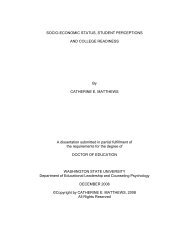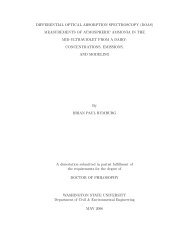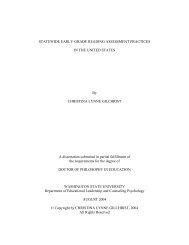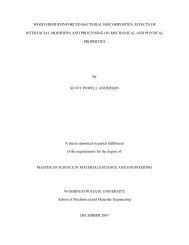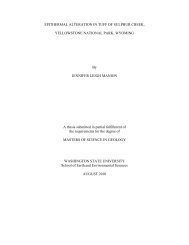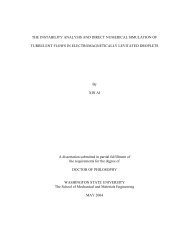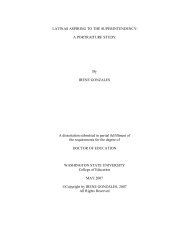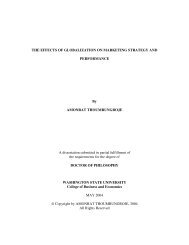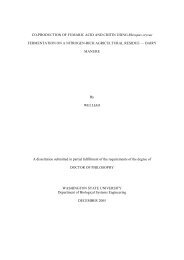the moral reasoning of student athletes and athletic training students
the moral reasoning of student athletes and athletic training students
the moral reasoning of student athletes and athletic training students
Create successful ePaper yourself
Turn your PDF publications into a flip-book with our unique Google optimized e-Paper software.
esponsibility (Cohen, 1998) <strong>the</strong> many cheating sc<strong>and</strong>als, including <strong>the</strong> first intercollegiate crew<br />
race in 1852, raise concerns as to whe<strong>the</strong>r <strong>the</strong> way sport is taught, coached, <strong>and</strong> practiced is<br />
consistent with <strong>the</strong> ideal mission <strong>and</strong> goals <strong>of</strong> both higher education <strong>and</strong> <strong>the</strong> NCAA. However,<br />
measuring <strong>the</strong> development <strong>of</strong> one’s character in terms <strong>of</strong> integrity, sportsmanship, <strong>and</strong><br />
democratic ideals is difficult, however one way in which researchers have measured <strong>the</strong><br />
relationship between <strong>the</strong> ideal <strong>of</strong> sport competition in terms <strong>of</strong> <strong>moral</strong> character <strong>and</strong> individual’s<br />
beliefs towards this ideal is through <strong>moral</strong> <strong>reasoning</strong> (Lumpkin, Stoll, & Beller, 2003).<br />
Moral <strong>reasoning</strong> is a cognitive process whereby individuals learn to think, reason, <strong>and</strong><br />
reflect relative to a set <strong>of</strong> <strong>moral</strong> principles. It is “[t]he ability to systematically think through a<br />
<strong>moral</strong> problem, taking into consideration one’s own values <strong>and</strong> beliefs while weighing <strong>the</strong>m<br />
against what o<strong>the</strong>rs value <strong>and</strong> believe” (Lumpkin, Beller, & Stoll, 2003, p. 6). Moral <strong>reasoning</strong> is<br />
not synonymous with <strong>moral</strong> character but is a necessary component <strong>of</strong> <strong>moral</strong> character. Lickona<br />
(1991) argues that good character is comprised <strong>of</strong> <strong>moral</strong> knowing, <strong>moral</strong> feeling, <strong>and</strong> <strong>moral</strong><br />
doing. To act <strong>moral</strong>ly requires that an individual know <strong>and</strong> <strong>the</strong>n value <strong>moral</strong> principles.<br />
However, just because one knows <strong>and</strong> values, does not mean right action as <strong>the</strong>re are many<br />
competing factors influencing behavior. But at its very least, <strong>moral</strong> <strong>reasoning</strong> is a requisite.<br />
Thus, it is <strong>the</strong> intention <strong>of</strong> this study to examine to what extent intercollegiate sport <strong>and</strong><br />
higher education fulfill <strong>the</strong>ir stated missions <strong>of</strong> developing character by examining two specific<br />
<strong>student</strong> populations: <strong>student</strong> <strong>athletes</strong> <strong>and</strong> <strong>athletic</strong> <strong>training</strong> <strong>student</strong>s relative to <strong>the</strong>ir <strong>moral</strong><br />
<strong>reasoning</strong>, recognizing that <strong>moral</strong> <strong>reasoning</strong> is a necessary component <strong>of</strong> <strong>moral</strong> character..<br />
The Moral Reasoning <strong>of</strong> Athletes<br />
Most <strong>athletic</strong> departments personnel would argue that <strong>the</strong>y work hard to ensure that<br />
<strong>student</strong> <strong>athletes</strong> are supported in <strong>the</strong>ir educational experiences so that <strong>the</strong> <strong>student</strong> can achieve <strong>the</strong><br />
6


